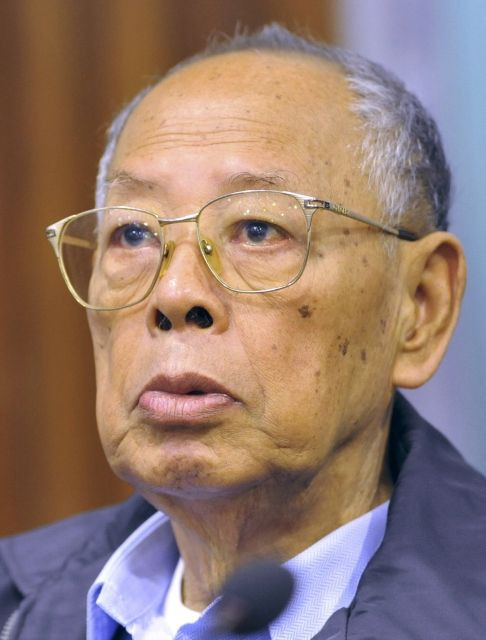Khmer Rouge Leader Ieng Sary Dies During Genocide Trial

Former Khmer Rouge senior leader Ieng Sary, who co-founded the brutal Maoist regime of Cambodia responsible for one of the worst mass killings of the 20th century, died Thursday, Cambodia's U.N.-backed court announced.
Ieng Sary was on trial for the genocide committed by the regime, which ruled Cambodia from 1975 to 1979.
The Khmer Rouge claimed the lives of more than a million people with some estimates saying up to 2.5 million.
Ieng Sary, 87, was being tried by a joint Cambodian-international tribunal along with two other former Khmer Rouge leaders, both in their 80s.
Ieng Sary’s wife Ieng Thirith, was also prosecuted, but was found incapable of standing trial after being diagnosed with Alzheimer's disease.
“We can confirm that Ieng Sary died this morning after being hospitalized since March 4," the court spokesman Lars Olsen said, adding it was "regrettable we cannot finish the proceedings in the case,” as reported by the AFP news agency.
Ieng Sary, who was known as "Brother Number Three" and served as the regime’s foreign minister, went on trial in November 2011 along with "Brother Number Two" Nuon Chea and former head of state Khieu Samphan. All three denied the charges against them.
The Khmer Rouge, led by Saloth Sar, better known as Pol Pot, tried to radically reform Cambodia’s social structure by abolishing religion, schools and currency and forcing the masses to work in agrarian labor camps in the countryside. Hundreds of thousands of people died from execution, starvation, disease and overwork.
The regime was defeated in Vietnamese invasion in 1979. Pol Pot, who was also Ieng Sary’s brother-in-law, fled and remained free until 1997 and died a year later.
In 1996, Ieng Sary defected and entered a deal with former Khmer Rouge defector and Cambodia's then-prime minister Hun Sen, who is also the incumbent. Days later, thousands of Khmer Rouge fighters defected led by Ieng Sary and the movement collapsed in 1999.
Having secured an amnesty for his act, Ieng Sary continued to live in comfort in Phnom Penh until 2007, when he and his wife were arrested on the genocide charges brought about by the U.N.-backed international tribunal.
© Copyright IBTimes 2025. All rights reserved.





















